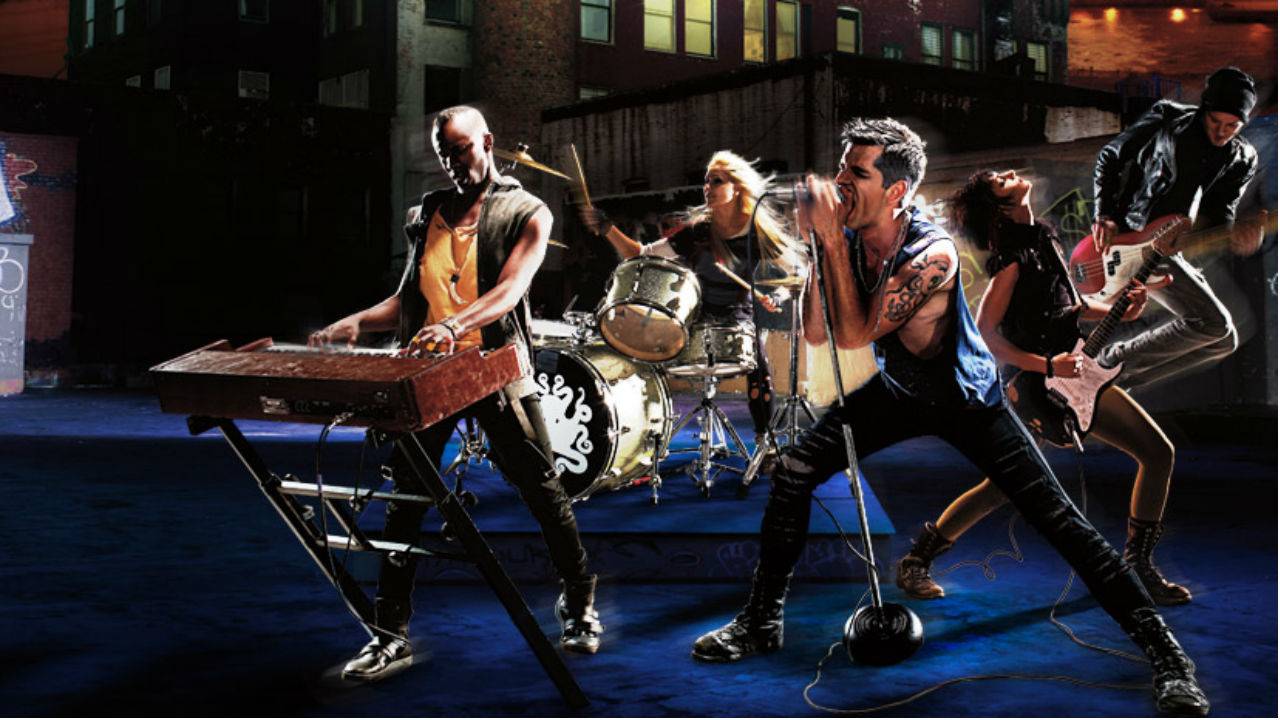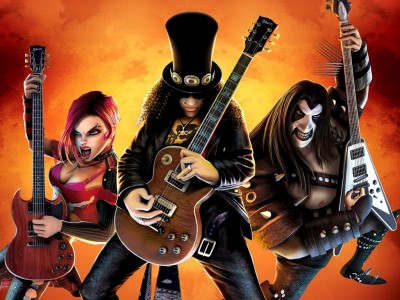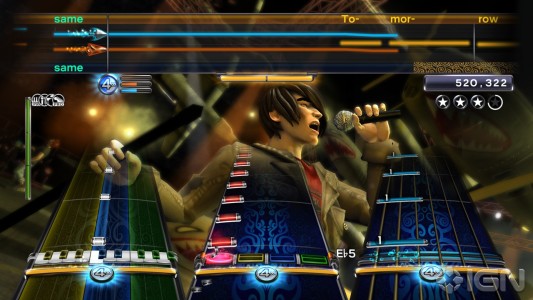Arguably two of the largest rhythm game franchises to take the world by storm are Rockband and Guitar Hero. These games had players strumming away at plastic instruments and jumping around their livingrooms for 7 years. Being able to play on expert was once something to lord over your friends, at least until you all remembered the instrument was just a plastic toy.
Using a circular shaped series “notes” in five different colors, players simulated the use of an actual guitar. In later iterations of the title, other instruments were eventually added, including drums and a microphone for vocals. Guitar Hero was originally the brainchild of Harmonix and RedOctane, a creator of gaming controllers. They sought to emulate Guitar Freaks a popular rhythm game in Asia, in a way that would appeal to Western Markets. After achieving great success in their first two iterations of the game, RedOctane was bought out by everyone’s favorite publisher, Activision. With Harmonix being acquired by MTV, the dynamic duo that made gaming history was no more.
The Guitar Hero series would change hands many times over the next few years, but a new foe arose as well. Harmonix, one of the originators of GH, paired with Activision’s rival publisher, Electronic Arts to bring us Rock Band. This title sought to revolutionize the rhythm game experience by turning it into a party experience rather than just an arcade game. By adding vocals and drums for the very first time in home rhythm gaming, Rock Band became the go to social gaming experience.
Despite new additions to both series, their popularity entered a period of steep decline. This could have been attributed to the fiscal woes experienced in the west, or simply the fact that gamers were over having bulky plastic peripherals in their homes. Activision began losing faith in the series and by 2011 had ceased any plans to continue it. This decision did not come without effort to save the beloved series. Spinoffs such as DJ Hero and iterations of Guitar Hero for both mobile and handheld were released in an effort to find a niche in a seemingly dying market. Eventually Guitar Hero moved into the arcade space where it remains today. Rock Band continued to expand their massive DLC library for it’s loyal fans, but took a hiatus for some time, only to return this year.
Recently, rumors have emerged about new installments into both the Guitar Hero and Rock Band franchises. While Activision seems to be tight lipped about this possibility, Harmonix has announced today that Rock Band 4 is upon us. In their release trailer, the production team explores new features, graphic and audio innovation, and rewarding their loyal fanbase. With a projected release in 2015, we will soon return to an age full of gamers strumming way too excitedly on plastic instruments.



